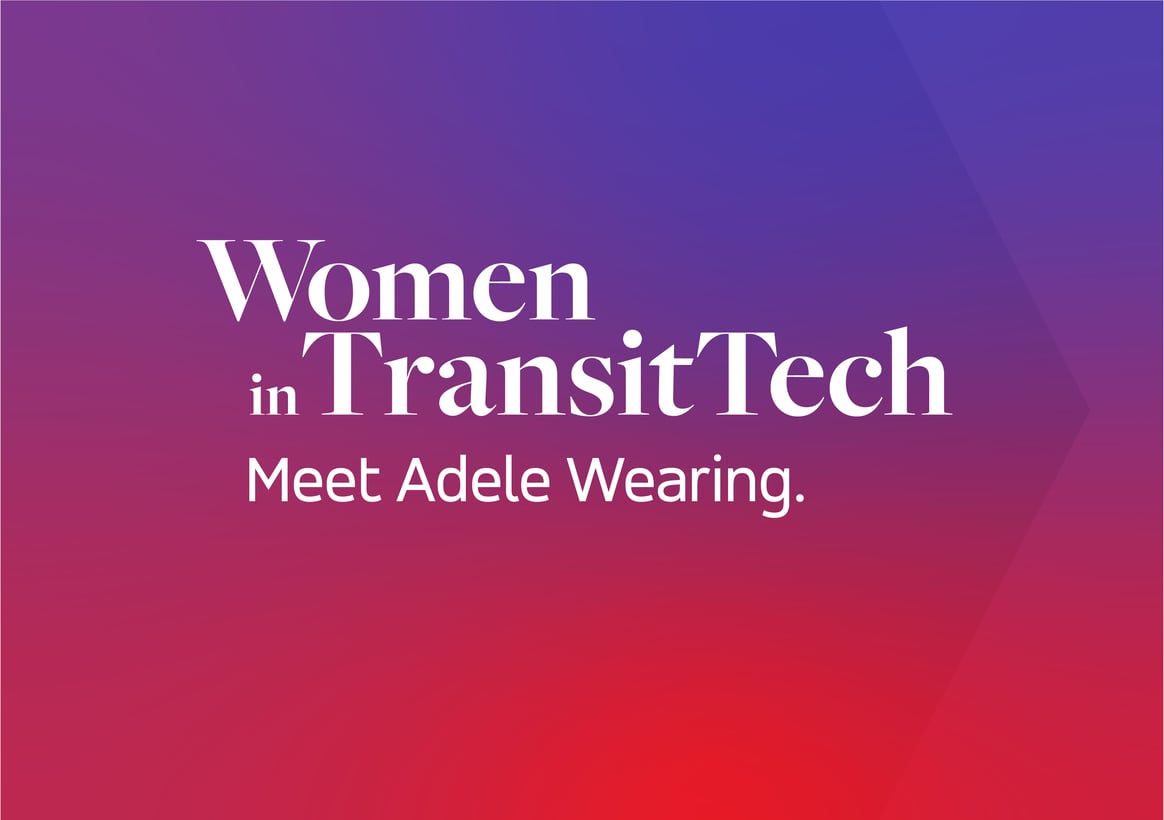Challenging the status quo takes diligence, determination, and vision — especially when it comes to an industry that hasn’t seen a seismic shift since the automobile was invented. And, as it turns out, it’s often women who choose to challenge these norms. In honor of International Women’s Day and throughout the month of March, Via is proud to profile a number of changemakers driving real innovation in their communities and inspiring their peers. Enjoy the story below, and then check out the rest of the series here.
Adele Wearing is Strategic Lead for Transport at Milton Keynes Council (MKC) in the United Kingdom and has worked in local authority transport for 20 years. In that time, she has delivered a wide variety of schemes including stops and shelters, urban regeneration, signalized crossings, cycle lanes and parking machines, and traffic regulation orders, before shifting to focus on intelligent transport and tech-related schemes. As the lead in public transport at MKC, Adele has again widened her role — keeping TransitTech integrated into her approach to delivering a modern, effective transport network in Milton Keynes.
What did 10-year-old Adele want to be when she grew up? How did you evolve from there to your current position in transportation? I wanted to be an optician or 'something that would make a lot of money.' I am not good with eyes, it turns out. I did a degree in psychology and started temping for Area Traffic Control in Leicester. I liked the environment and found the work the section did interesting, so I found ways to stay and move into project-based work. When I was made permanent, I went on and did a professional qualification in traffic engineering. The work I did changed a lot over the years and that was part of what is so fascinating about transport.
What do you think are the most important qualities in a leader? Are there any leaders, in particular, you look up to? Well, Captain Picard, obviously. The epitome of reasoned calmness and moral standing, but not afraid to take decisive action when needed, which I think are some of the key qualities for a leader. I also admire Janeway for her passion and determination. I’m sticking to Star Trek for this one, although I will say I am very fortunate in my work.
What are the big transit challenges in your community that your team is solving with innovative mobility projects? The biggest challenge is obviously the reason for the change in the subsidized bus network . We have, for a long time, been running a large number of subsidized buses with poor patronage, along historical routes. By moving to demand-responsive — which is a tech-led service — we can continue to get those people where they need to go, but we can also understand more about what journeys people actually want to take, which parts of Milton Keynes might be able to support a commercial bus route, whether there are opportunities to deliver modal shift, and more. This is a huge benefit for us in transport planning, as well as on a day-to-day operational level. We also need to look at how we communicate with existing bus users, lapsed bus users for recovery, and also how we reach people who aren’t currently bus users and get them to look again at public transport as an option. Technology for ease of access and user confidence is going to be critical for that.
In your view, what’s the biggest challenge the transportation industry as a whole will have to tackle in the next 2-5 years? I think COVID-19 has brought changes we knew on some level were coming forward by five years or more, and it won’t just be a case of recovering patronage that dropped off due to the pandemic. Local transport is facing a national challenge on multiple fronts. We need to restore confidence that public transport is safe as we come out of the pandemic. We also need to rethink who is using it and how as work — and therefore travel patterns — are changing. In order to bring new patronage, which will be essential if we want a strong network moving forward, we also need to think about what public transport offers. There will be an expectation from people who have grown up with app-based on-demand transport and we need to find ways of meeting that.
Tell us about a defining moment in your professional life that has helped guide you on your path. Ok, this is a little odd, but while I was still temping I went for an interview for a permanent job. I didn’t get it, and I was told by the agent afterward it was because they thought I was too committed to my current area of work and wouldn’t make the transition. I learned that it isn’t useful to wax lyrical about rotating cones at traffic signals to insurance companies, and that actually I really do love the transport field. I think that’s when I decided I was staying.
And finally, what drives you? (Pun intended!) I like challenges and there are always new ones in transport, so it stays fresh and interesting — there is always something that needs problem-solving and I enjoy that. I also love to see things change and see the work we do as a team make a tangible difference to people. It’s nice to have a job where you can define what you did after a long project and you can monitor and see the difference it makes. Really, I think those are the key drivers.

.png?width=71&height=47&name=Sioux%20Falls%20Webinar%20(6).png)


